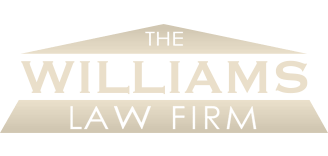What You Need to Know About Blockchain
You may have first heard about blockchain from a client or a friend, but it’s important to have baseline information about what it is and what differentiates it from cloud computing or your dedicated server. It is much less about geeking out on computer science and more about getting rid of the need for trust.
What Is Blockchain?
Blockchain is a technology that encrypts, replicates, and verifies data across an array of servers to make the digital records more reliable than traditional cloud or single location-based servers. Blockchain networks can be relatively small and only include a small number of “nodes” (servers or users) within a single company for example, or they can be completely open to millions of different users around the world. The data, when recalled is pulled from all nodes (individual servers) where it was stored to verify the data was not modified by hackers. That stored data is compared to be sure no discrepancy exists and consensus exists among all nodes in the blockchain. This redundancy ensures the data has not been modified. A blockchain is a “self-auditing” network having no central authority approving the transactions. A blockchain may require an “oracle” to make rules, but ideally has no user with super-authority to make modifications to data without blockchain verification. Therefore, blockchain networks are more redundant than traditional centralized servers, leading to safer and more reliable record-keeping that does not require a single trusted repository.
How Is Blockchain Used?
Blockchain, also known as distributed ledger technology, has worlds of applications outside of its most well-publicized one, the digital currency Bitcoin. New companies that have developed a blockchain-related application are being formed every day with some of the most promising involving legal and financial transactions. Blockchain has garnered attention in the legal and finance world not only because of Bitcoin and Ethereum, but because many are comparing blockchain’s disruptive potential to the internet. Many lawyers understand the value of eSigning, emailing, and online agreements, but many lawyers have become so accustomed to traditional record keeping that they have not come to appreciate the potential for blockchain record keeping.
Blockchain technologies related to corporate stock and record keeping have great potential to guard against different types of defective or fraudulent transfers. The current popular method of maintaining records in Microsoft Excel or an application, such as QuickBooks, is vulnerable to creditor accusations of manipulation. The immutable record provided by a transaction in a blockchain allows the books and records to be more defensible if the blockchain retains verified data on:
- How corporate assets were acquired;
- When assets were acquired;
- From whom assets were acquired;
- How much was paid for assets; and
- How assets were disposed of or transferred.
Delaware’s Blockchain Amendments
Delaware is on the forefront of Corporate law. On July 21, 2017, Delaware Governor John Carney signed Senate Bill 69 into law which amended sections of the Delaware General Corporate Law (DGCL) to include blockchain amendments, giving legal efficacy to digital distributed ledgers. At least seven states as of today have enacted blockchain legislation with many more coming. The new Delaware legislation, which applies to the stock ledgers of Delaware corporations, raises the question of how blockchain could be applied to other non-corporate organizations to document their ownership, management, and even internal record keeping and bookkeeping.
Apart from newly-formed and existing corporations who want to move their books and records to a blockchain system, lawyers may also be approached by client entrepreneurs who are developing a new blockchain technology. It is important to have threshold knowledge about blockchain since the frequency of these questions will only increase and you will need to be able to inform your clients’ and your own decisions. Our experience with blockchain entrepreneurs and legislators in Delaware has led us to start to build technology to solve the transparency and record-keeping issues posed by Series LLCs. We have also benefitted from this experience by better understanding how we can guide clients and their businesses through the changing world of blockchain law by improving technology and transactions and removing trust from the equation.

